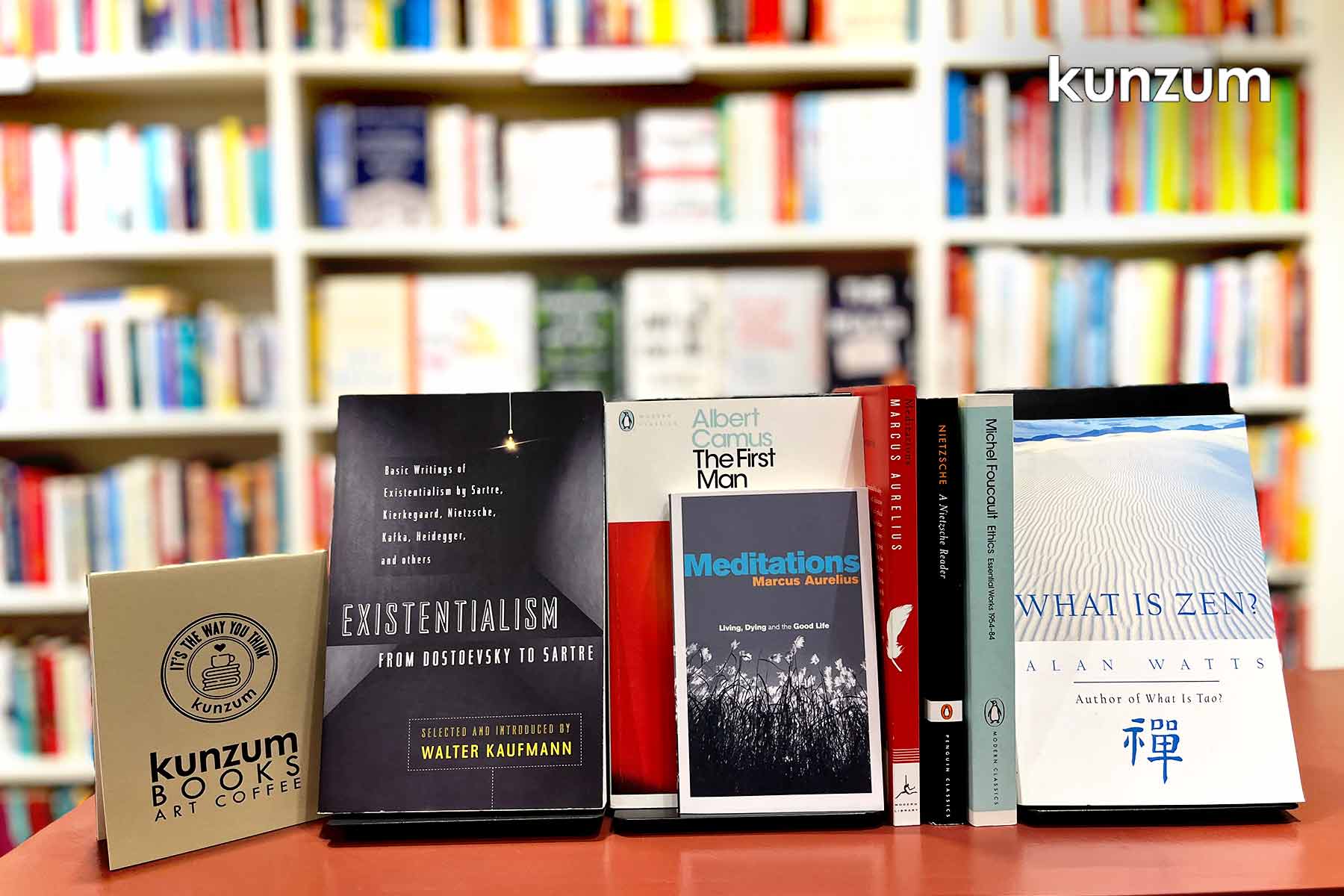
Dive into the vast ocean of philosophical thought with these compelling reads. From the existential angst of Camus and the radical ideas of Foucault, to the enduring wisdom of Aurelius and the often-overlooked genius of Fondane, this article explores core questions on meaning, morality, and the human condition. Prepare to have your mind challenged and your worldview reshaped.
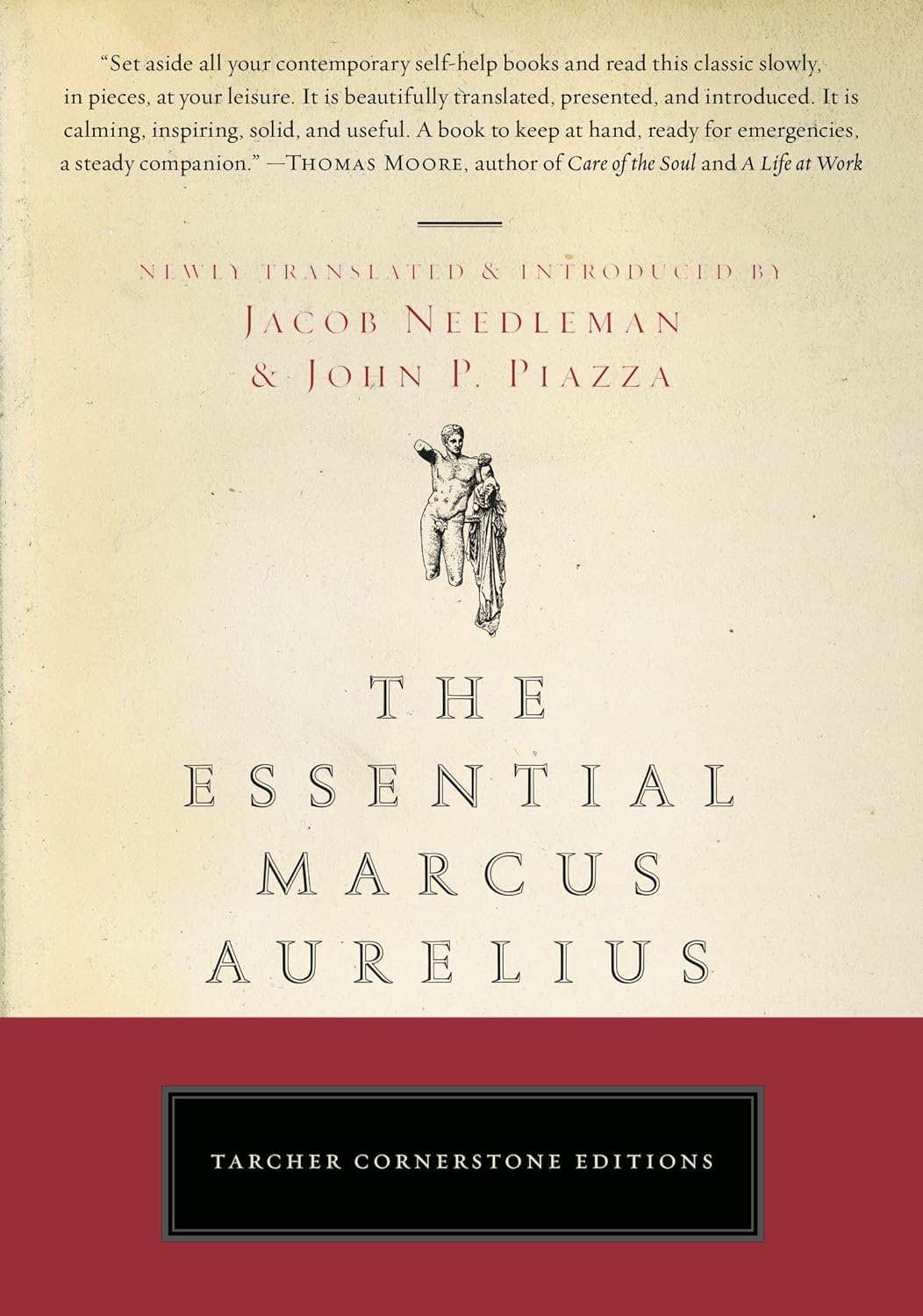
The Essential Marcus Aurelius Reader
It is not death that a man should fear, but he should fear never beginning to live.
If you aren’t familiar with the wisened words of Marcus Aurelius, part-time-Roman Emperor-part-time-Stoic-philosopher, then this book is the perfect place to start. Containing most of Aurelius’ work, this, the mother of all self-help books, focuses on the philosopher-king’s guide to a good life. With a timeless and universal appeal, The Essential Marcus Aurelius is a must have for all interested in self-development and the deft art of handling work-life crises.
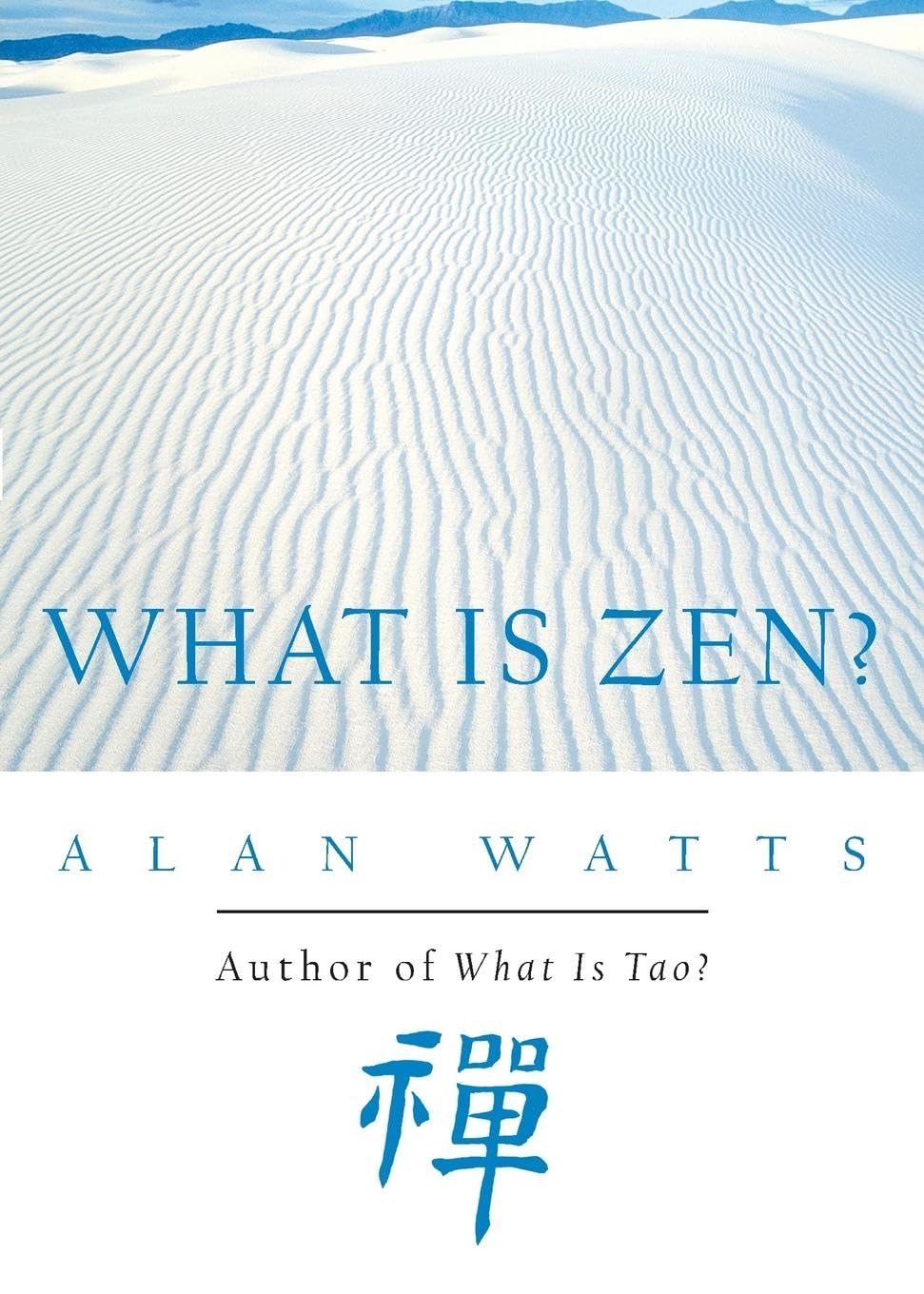
What is Zen by Alan Watts
Zen is the method of rediscovering the experience of being alive
Zen is that Buddhist strand of thought that emerges directly from the synthesis of Indian spiritualism and Chinese Taoism. Alan Watts, the man whose lectures single-handedly exported Zen to the Western world, examines the philosophy’s religious roots as well as its influence on Eastern and Western culture. Tracing its transcendent moments and the process of Zen meditation, Watts’ book introduces a way of life that threatens to enlighten you. Presenting a conversational approach to Zen while providing a historical overview, this is a great book to own and occasionally re-read.

The Fall by Albert Camus
People hasten to judge in order not to be judged themselves.
The Fall explores themes of innocence, imprisonment, non-existence, and truth. Existentialist philosopher Jean-Paul-Sartre described the novel as “perhaps the most beautiful and the least understood” of Camus’ books. FollowingJean-Baptiste, whose soul lies in deep turmoil, the novel takes us to several drunken nights in an Amsterdam bar as well as a monumental chance-encounter. A successful former lawyer and alleged model citizen, Baptiste brilliantly contains a compelling catalogue of bottomless self-loathing, guilt, hypocrisy as well as a seriously existential sense of alienation. A great introduction to Camus’ philosophical critique of modern living and its attendant anxieties, The Fall makes for a worthy addition to the shelves of any thinking soul.
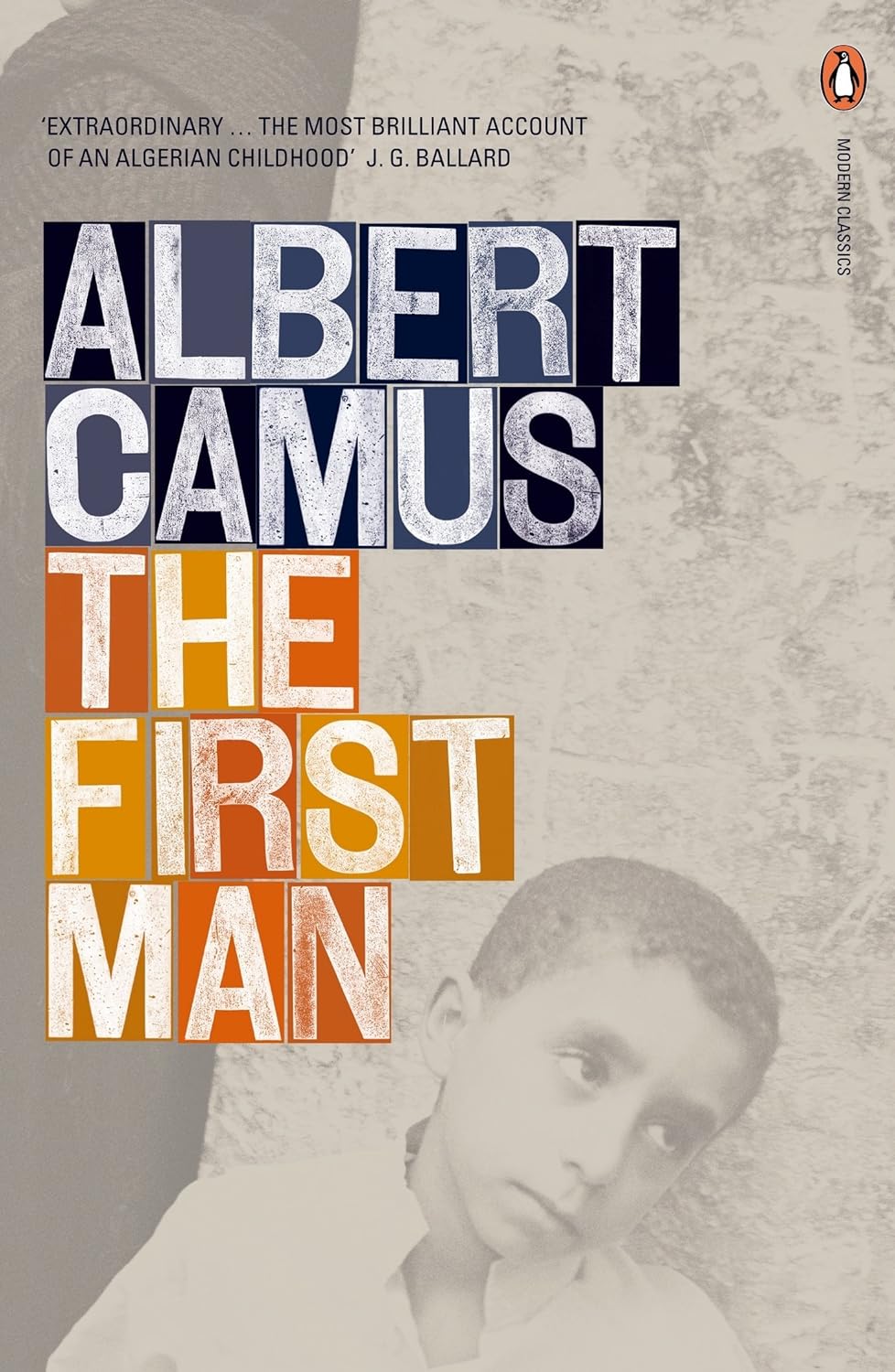
The First Man by Albert Camus
There is a terrible emptiness in me, an indifference that hurts.
Yes, this is it. Camus’ unfinished final novel. A manuscript discovered in the wreckage of the very car accident that claimed Camus’ life in 1960. Unpublished for over thirty years, when finally released in 1994, The First Man became an instant bestseller. The novel follows Jacques Cormery, whose poverty-stricken childhood in Algiers is only made bearable by his love for his silent and illiterate mother, as well as the teacher who transforms his view of the world. The most autobiographical of Camus’s novels, it gives profound insights into his life, and the powerful themes underlying his work.

The History of Sexuality by Michel Foucault
Where there is power, there is resistance.
Michel Foucault offers an iconoclastic exploration of why we feel compelled to continually analyse and discuss sex, and of the social and mental mechanisms of power that cause us to direct the questions of what we are to what our sexuality is. A French philosopher, historian of ideas, writer, political activist, and literary critic, Foucault is best known for his retrospective analysis of the discourses of power that have shaped modern life and its knowledge systems. In his “The History of Sexuality ”, he expertly challenges the idea of a repressed Victorian sexual past, arguing instead of the sudden surge in sexuality discourses in and around the 18th and 19th centuries. The book traces our current and problematically fixed understanding of ‘sexuality’ to these burgeoning discourses, revealing each individual’s narrativization of self as being deeply constructed and historically-affected.
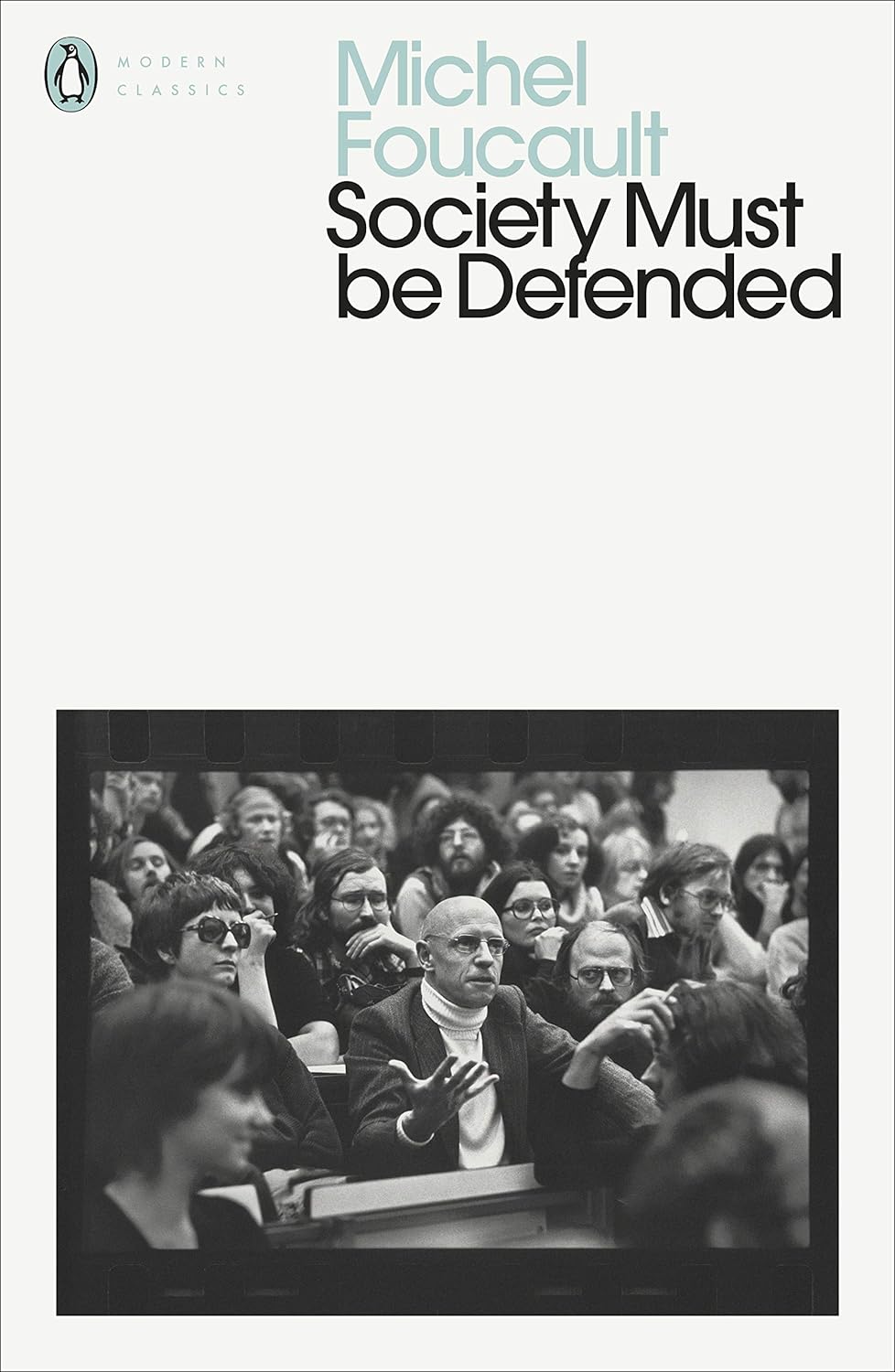
Society Must Be Defended by Michel Foucault
Let us say that we are obliged to produce the truth by the power that demands truth and needs it in order to function: we are forced to tell the truth, we are constrained, we are condemned to admit the truth or to discover it.
In Society Must Be Defended, Foucault deals with the 17th century emergence of a new understanding of society and its relation to war. War was now seen as the permanent basis of all institutions of power, a hidden presence within society that could be deciphered via historical analysis. Marx, class, race, wealth, sexuality, nothing remains free of the scope of Foucault’s critic. This text rigorously explores a shift in power dynamics. In examining how the concept of war transitioned from a sovereign’s right to take life, and led to a biopolitical focus on managing populations’ health and survival, Foucault delves into the rise of biopower and racism, particularly within the anxieties surrounding race and national identity in the 20th century.
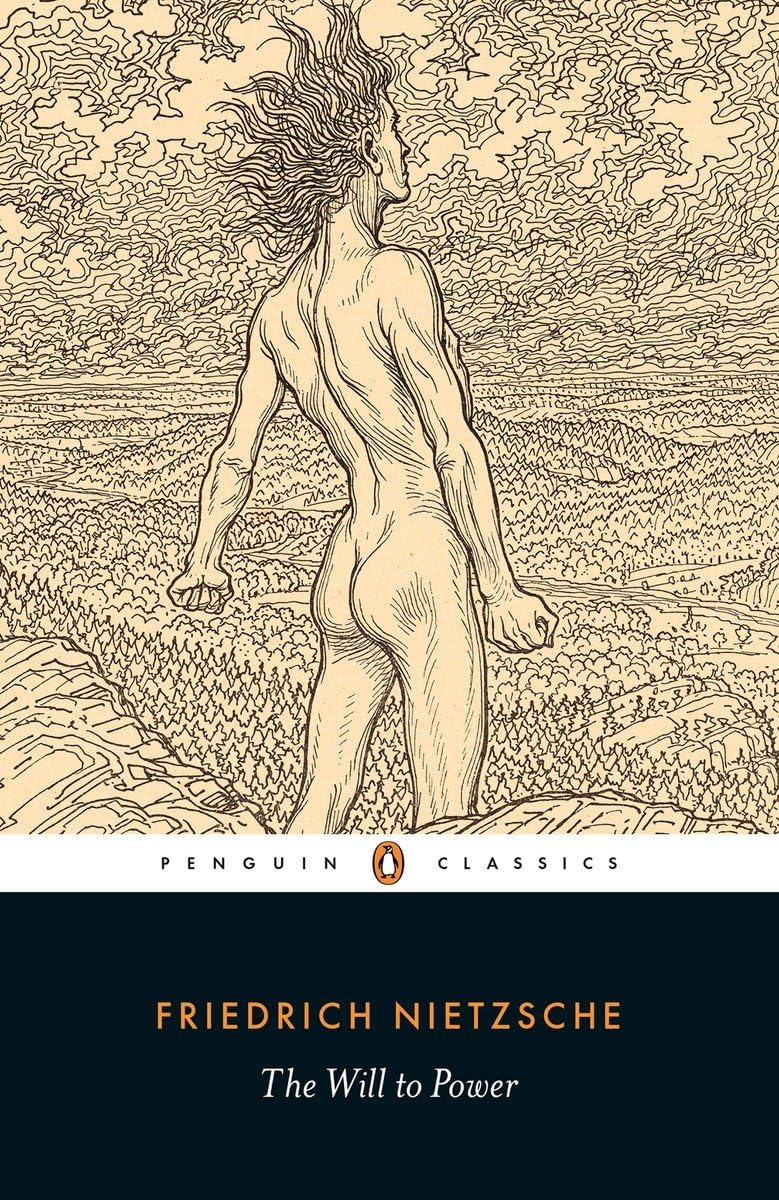
The Will to Power by Friedrich Nietzsche
To those human beings who are of any concern to me I wish suffering, desolation, sickness, ill-treatment, indignities—I wish that they should not remain unfamiliar with profound self-contempt, the torture of self-mistrust, the wretchedness of the vanquished: I have no pity for them, because I wish them the only thing that can prove today whether one is worth anything or not—that one endures.
The Will to Power is a collection of Nietzsche’s notes that he wrote during the most productive years of his life. The philosopher, best known for his attempt to make sense of a post-God world where previously held values suddenly lost all meaning, is better known by this unfinished magnum opus and its infamous title. Friedrich Nietzsche’s “The Will to Power,” explores the concept of a fundamental human drive – the will to power. This urge, argues Nietzsche, is the force behind our ambitions, creativity, and even aggression. Challenging traditional morality and religion,it is revered as a confident text that speaks to the vital irreligious force within each and its power to shape social reality. It’s a complex work, open to interpretation, but its core asks: what truly motivates us, and how can we best channel this will for self-growth? This the crowning jewel of his philosophical work, has been accused of creating a world war, while simultaneously being regarded as the private Bible of a choice few.
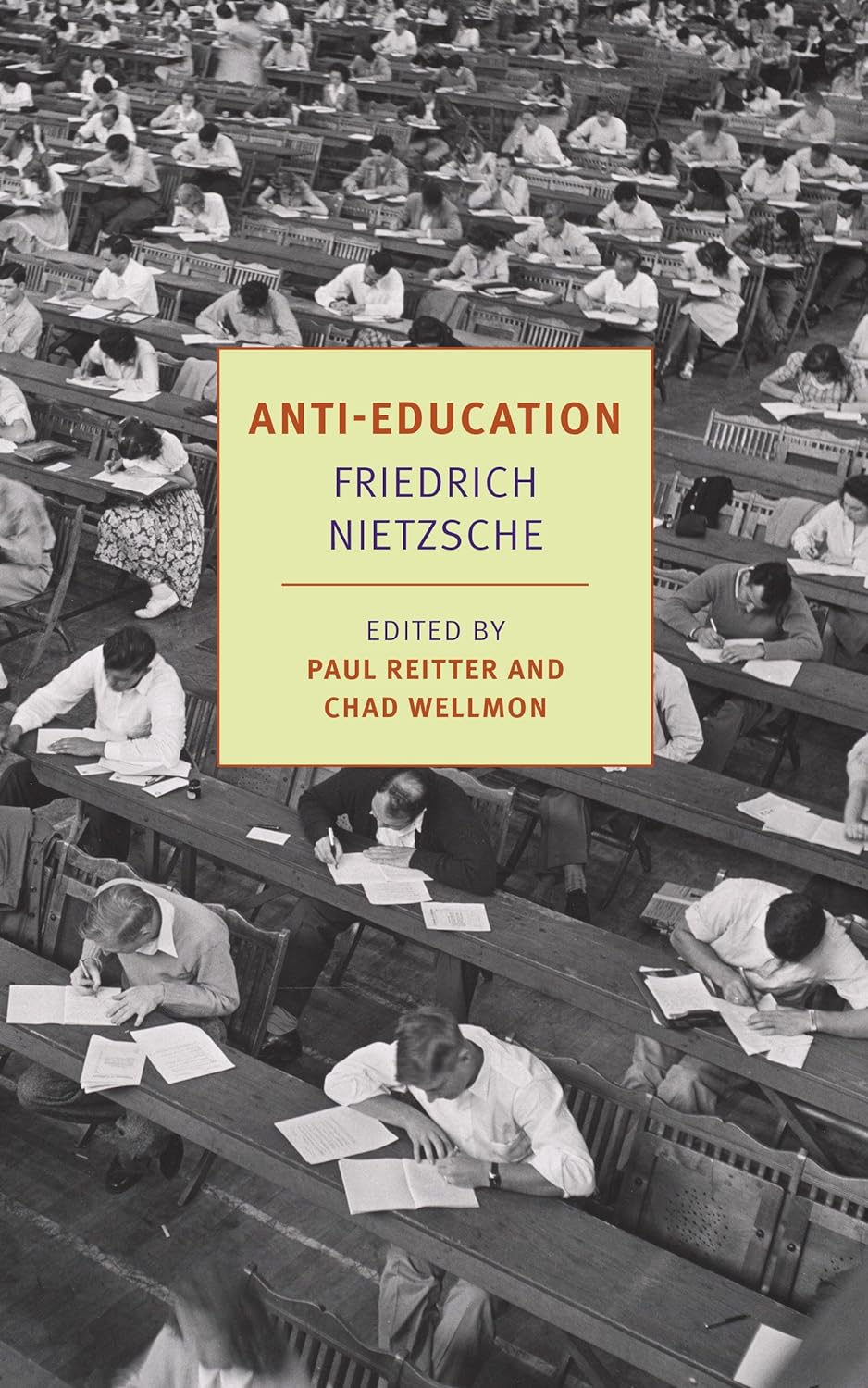
Anti-Education by Friedrich Nietzsche
In 1869, a twenty-five-year-old precocious Nietzsche was appointed to a professorship of classical philology at the University of Basel. Seemingly marked for a successful and conventional academic career, an introduction to the works of Schopenhauer and Wagner abruptly transformed his sense of purpose. Thinking of the genius of such thinkers and makers, Nietzche critically examined the value of formal education in facilitating the type of enriching dialogue and self-driven learning that marked the brilliance of these intelligent figures. Critiquing two educational trends, that of mass education, which he viewed as detrimental to individual potential in its blindly uniform approach, as well as the trend of utility-driven education, which values career-oriented knowledge systems over those pursued for the sake of learning, Anti-Education dives deep into the merits and demerits of conventional educational systems. A critique presented in five vivid, popular public lectures in Basel in 1872, often emulating if not satirising Platonic dialogue, it presents a provocative and timely reckoning with what remains to be one of the great problems of modern societies. Cue Floyd?

Existential Monday by Benjamin Fondane
Fondane, heavily influenced by Kierkegaard and Nietzsche, believed that we ought to give up ‘reason’ and all such high-falutin concepts for our own ontological benefit. Existential Monday, a collection of existential essays that explore the human condition, masterfully contrasts the liberating freedom of the individual with the constraints of grand narratives like history and religion. He explores themes of rebellion against the status quo, the importance of living in the present, and the anxieties of navigating an uncharted existence, celebrating the authenticity of personal experience as opposed to those determined by various establishments. Quietly murdered in the concentration camps of WWII, Fondane has unfortunately been forgotten, swept away in an anonymous death along with countless others. A champion of individual freedom, rejecting absolutist histories and institutionalised force, Fondane must always be remembered as a remarkable force in Jewish Existentialism, as well as a man who lived his philosophy to the very end.

Existentialism From Dostoevsky to Sartre by Walter Kaufmann
Existentialism is not a philosophy but a label for several widely different revolts against traditional philosophy.
One of the foremost resources on existentialism from renowned philosopher, poet, and Nietzsche translator Walter Kaufmann, this guide to existential philosophy explores the system of thought through the writings of key figures, from Fyodor Dostoevsky to Jean-Paul Sartre. His approach is brilliant in its ability to showcase seminal existentialist ideas, like individual freedom, responsibility in an uncaring world, and the search for meaning, and how they evolved. Kaufmann argues that existentialism isn’t one set philosophy, but a movement wrestling with what it means to be human in a world that offers no easy answers. It is truly a must-read for philosophers, both armchair and professional.
Pick up any one of these 10 Mind Blowing Philosophy Books from any Kunzum store or WhatsApp +91.8800200280 to order. Buy the book(s) and the coffee’s on us.
